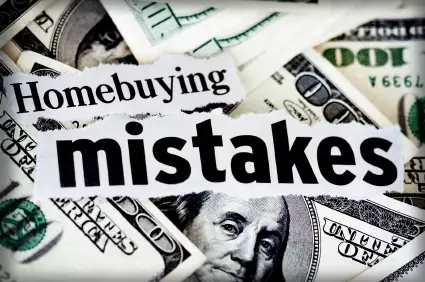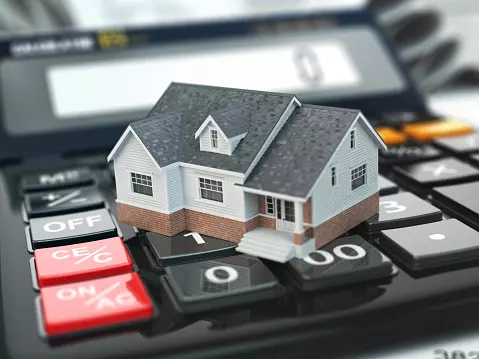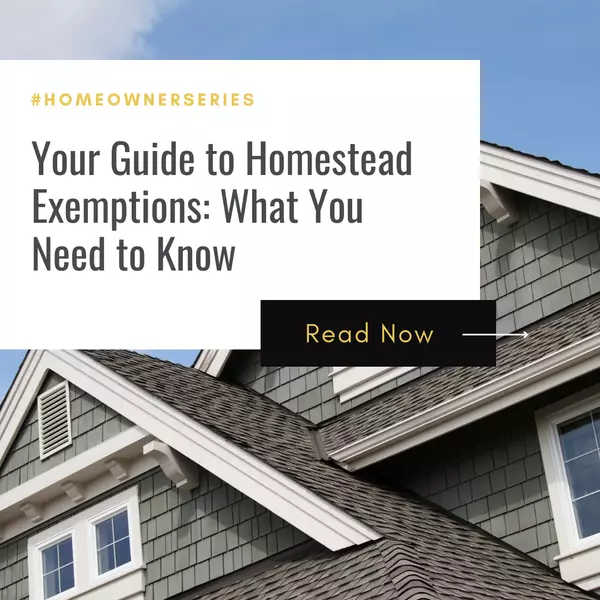
Top 5 Most Common Mistakes First-time Homebuyers Make
Buying your first home is a big deal and with such a major decision can come big mistakes, if you aren’t careful. Here are the top 5 most common buyer mistakes and tips on how to avoid them. Shopping for a home before applying for a mortgage Finding out how much you can reasonably afford in a home is always your first step when beginning the home buying process. It’s crucial that you, as a homebuyer, know exactly how much you are approved for and have an approval letter in hand before you step foot in any prospective home. Why? For one, knowing how much you have to spend prevents you from falling in love with a home that’s above your budget AND from settling for one when you can afford more. Additionally, to go to contract on any home, you will need a pre-approval letter from a lender to submit your offer. In a competitive market where inventory is limited, your home could be sold fast to the next buyer while you’re waiting for a pre-approval. Only talking to one lender There are several loan programs out there and choosing the best one really depends on your financial situation. Therefore, it’s important that you shop around and gather as much information as possible about the loan programs you qualify for. It’s advised that you shop at least three lenders before making a decision. Each lender should be able to review your file and give you details on the loan program(s) you qualify for. Be sure to compare rates, fees and loan terms. Then you can accurately and more confidently decide which program and lender work best for you. Also, pay close attention to each lender’s level of customer service. The interaction you have with your loan officer/lender can make or break your entire home buying experience. Since the financing portion of the process is considered the most intense, having someone you can trust, who is responsive and knowledgeable is key! Buying more house than you can afford In a competitive seller’s market with limited inventory, home prices are typically higher – some would say inflated. Thus, when you find the home you love, it’s not hard to overextend yourself by stretching your budget just so you can get that dream kitchen with the flawless center island. It's important to note that buying a home that is overbudget places you at a higher risk for losing it should you ever fall on difficult financial times. Additionally, by having so much of your income tied up into the mortgage, you impact your ability to pay your other bills. This is what we refer to as being “house poor.” Fortunately, the criteria for home mortgage lending have tightened since the last housing crisis however, it’s still possible to be approved for more than you are ‘willing’ to spend monthly on your home. How? Lenders don’t take into account your bills not attached to your credit (i.e gas, food, etc) when reviewing your file for loan approval. Therefore, it’s important that you create a mortgage budget based on your actual monthly spending and stick to it! Making decisions based on emotions It can be an emotional experience after searching for a while and then finally finding that ‘perfect’ house to call home. Think about it! You envision yourself in this home and your family making tons of happy memories. You’ve become attached to the home and it’s not even yours yet. It’s recommended that you not become attached or emotionally invested into any home that you view because it can lead to you overpaying for it. Also, being attached to a home when your offer isn’t accepted can cause you to become biased and closed-minded to the homes you view after. This subsequently could affect you ever purchasing a home because when compared to your dream home, the other simply fall short. Waiting for the ‘perfect time’ to buy Maybe you're waiting for the rates and home prices to be at the lowest before you buy a home? Or perhaps you’re waiting until you have 20% saved to put down? There will never be the perfect time to buy a home as no one has a magic crystal ball that determines when the perfect scenario presents itself. Sometimes you have to just go for it and waiting for the perfect time could actually cause you to miss out. As long as you do your research, consider all your options and budget appropriately, you shouldn’t have a problem finding a great deal.

What is a Rent-to-Own Home?
For most buyers, purchasing a home means that you’ll first need to be approved for a mortgage. To qualify, certain requirements must be met such as a decent credit score, money for a down payment, an acceptable amount of income compared to debt, amongst other things. For some, this traditional path to homeownership may not be a viable option. Thus, renting-to-own a home presents an alternative route for renters who want to buy but can’t currently qualify for a mortgage. Future buyers have the opportunity to lease a home with the option to buy it before the lease expires. Although this may sound like the perfect plan, rent-to-own agreements can be quite complicated AND risky. Before getting into the pros versus cons of going the rent-to-own route, it’s important to understand the key terms to watch out for. Key Terms: Rent-to-own contracts usually last between 2-5 years You can decide you don’t want to purchase the house after your contract expires. You will be responsible for paying an upfront option fee. This fee will be credited towards the purchase of the home. If you decide not to purchase the home, this fee is usually non-refundable. There is no standard option fee amount but it’s typically a percentage of the home’s purchase price. The rent-to-own process is less regulated thana typical renting or buying process, so there’s no standard contract. This means that all terms in the contract are negotiable. It’s important to get an attorney and/or real estate agent to assist with drafting and explaining the terms of the agreement. Pros: Allows buyers the opportunity to live and pay towards their home while rebuilding their credit scores. Buyers can lock in a purchase price now and avoid the natural increase of home prices years into the future. The option to live in the home before committing to buying the property. Reduce the cost and inconvenience of moving multiple times. A portion of the rent goes towards the price of the home. Can qualify with unfavorable credit ratings and history. Cons: Large upfront fees. If you decide to terminate the contract early or not follow through with the purchase, you forfeit your option fee. You may still not qualify for a mortgage at the end of the rent-to-own agreement. Only a small portion of your monthly rent payment will go towards the purchase of the home. The rent payment price through a rent-to-own agreement is typically higher than other rent prices for similar homes in the area. This is largely due to a portion of each payment being set aside as credit for the future purchase of the home. You may be responsible for repairs, regular maintenance, HOA fees, and property taxes while renting. Home values can go down and you could end up paying more than the property is actually worth. There are also companies out there that will purchase a home of your choosing and will lease it back to you using the same rent-to-own method. However, such companies typically tack on an excessive amount of fees. Also, should you decide not to follow through with purchasing the home after your lease expires, you can be out of a lot more money than just your monthly “rent” payments. It’s important to know that these companies do still run their own screening process as not everyone will be approved to go through their program. Although their requirements are lower than qualifying for a mortgage outright, they usually call for more upfront cash to compensate for other areas where normally a decent credit score and payment history would suffice. Below is an example of some of the fees you may incur when renting-to-own from a company. Administrative or Onboarding Fee – sometimes this can be as much as 1% of the total purchase price. This fee is paid upfront and is usually non-refundable. Purchase Option Fee – this upfront fee is usually 3% or more of the home purchase price and will go towards your down payment. However, should you decide not to purchase the home at the end of the lease term, you will forfeit the 3%. Rent Payment – you will typically pay above the regular mortgage amount and in most cases, the current rental market value for the rent-to-own home while only 10% of that payment will go towards the purchase of the home. Purchase Option – some companies will require that you pay a certain percentage above what it cost them to acquire the property (purchase price plus any applicable closing costs). For example, if the company’s fee is 6% and the home cost $150,000 with $6,000 in closing costs, your new purchase price would be $165,360 ($150,000 + $6,000 = $156,000; $156,000 X 1.06 = $165,360) Overall, the cons of rent-to-own homes outweigh the pros. Although buying a home the traditional way may take more time, it’s worth it and far less expensive. If you want to purchase a home but don’t qualify just yet, it’s important to talk with a real estate agent about your options to make a good decision for your future.

